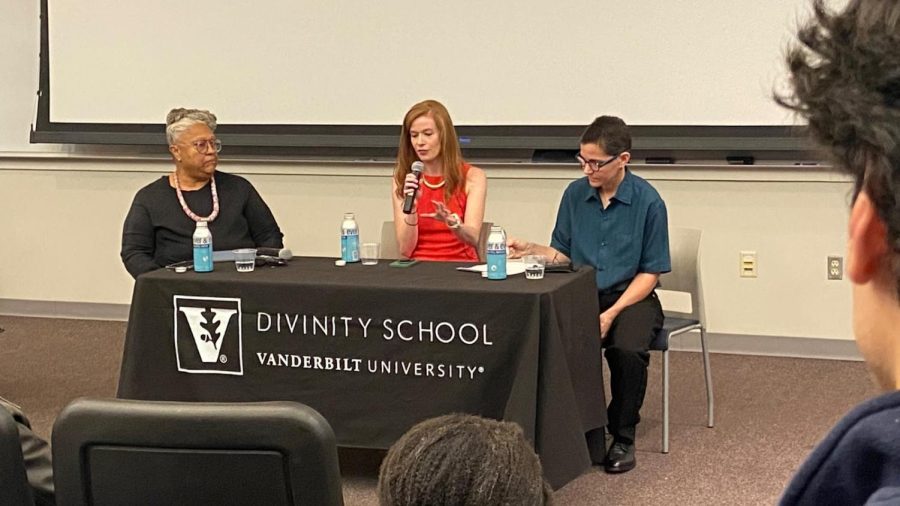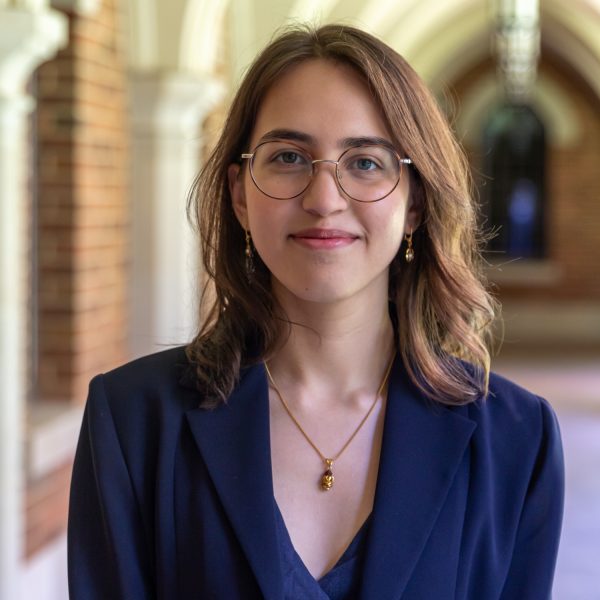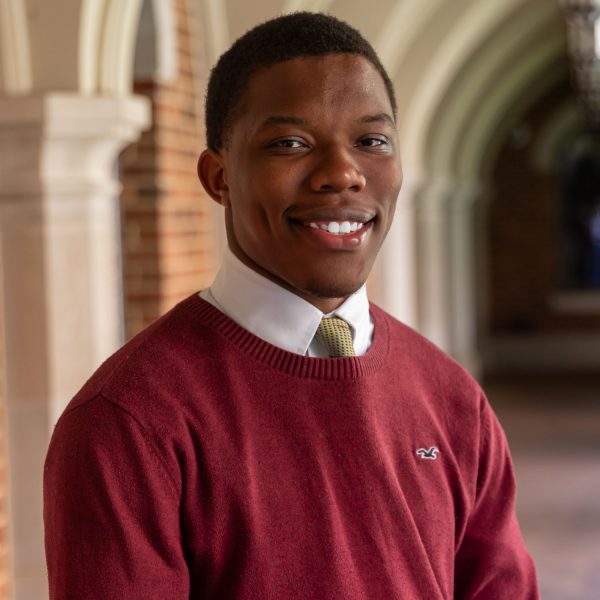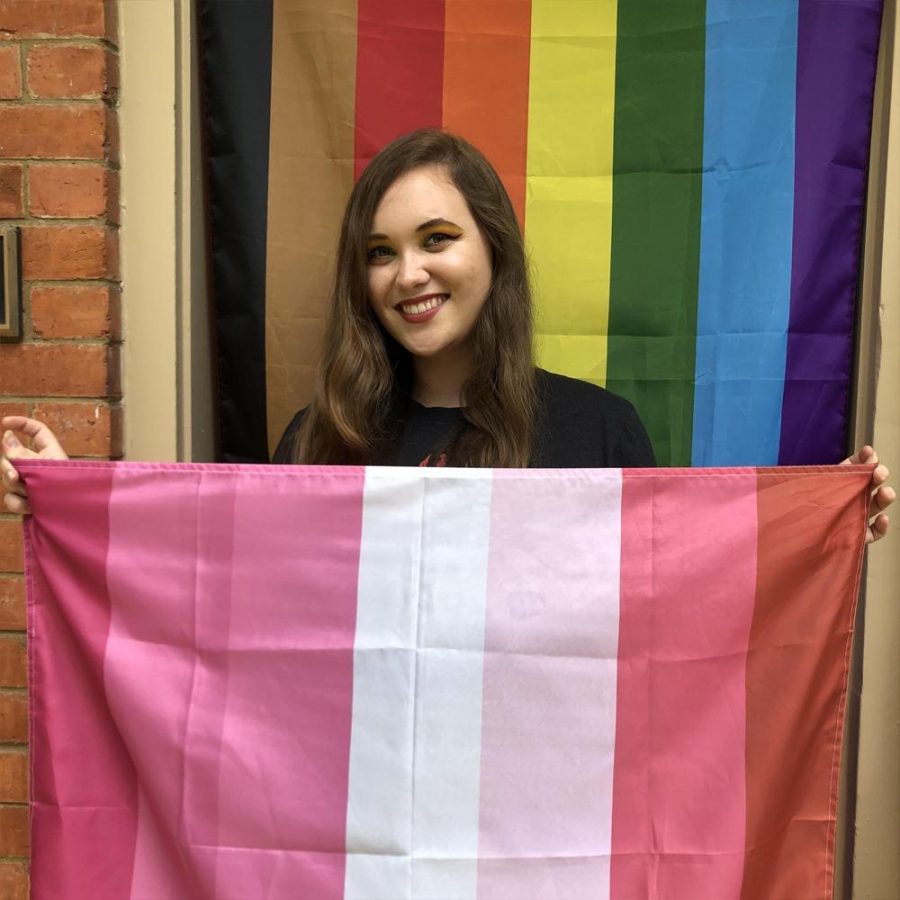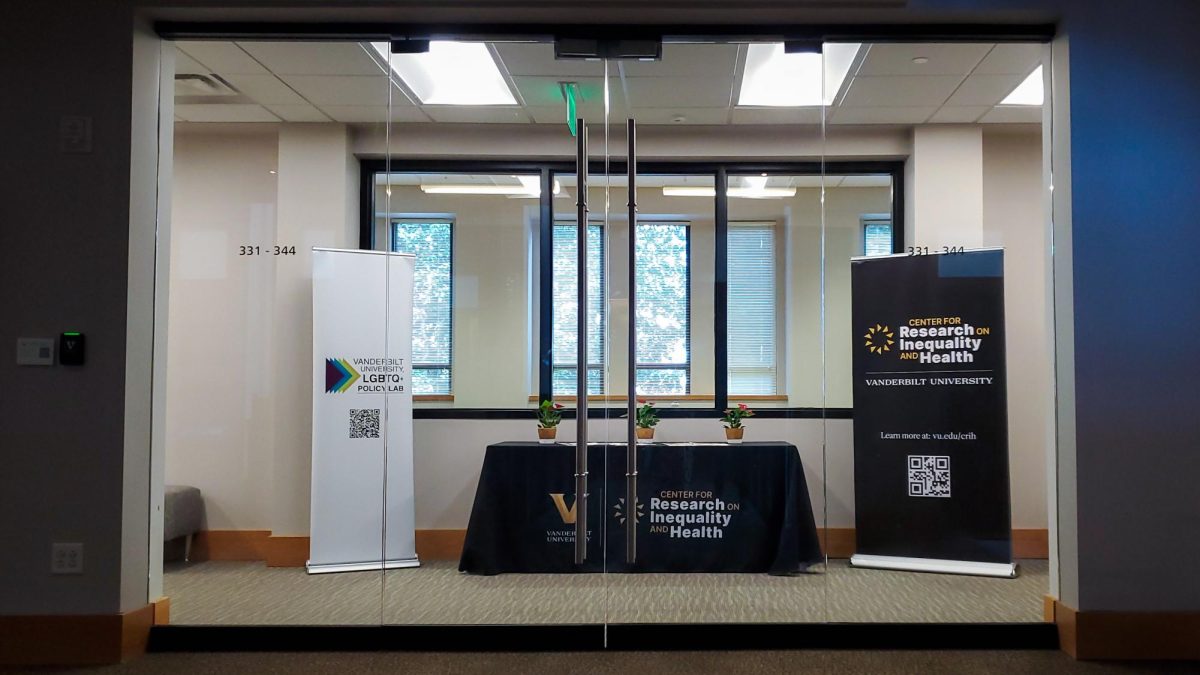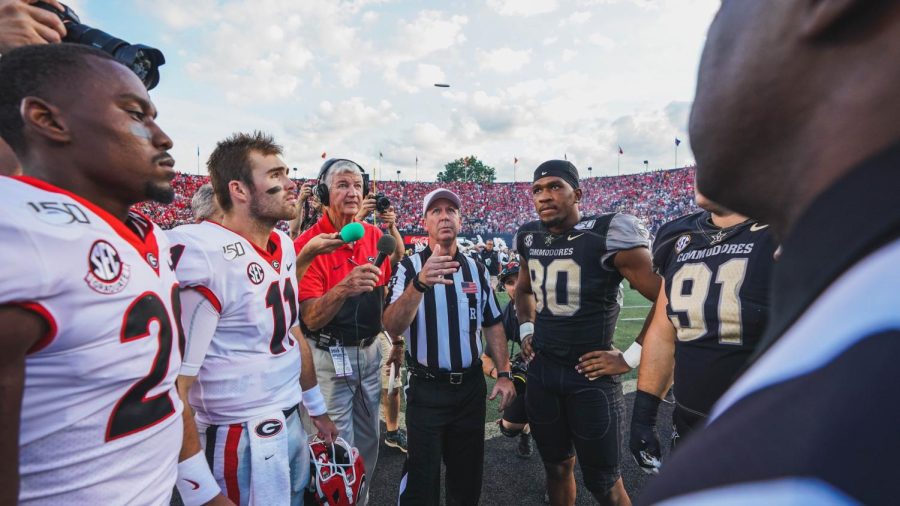Vanderbilt University’s LGBTQ+ Policy Lab and Divinity School hosted State Senator for Michigan’s 13th district, Mallory McMorrow, on Oct. 4. The speaker event comes 10 days after Tennessee Governor Bill Lee stated he would investigate the VUMC for providing gender-affirming healthcare to minors in response to accusations by conservative political commentators.
The event began with an opening from Katherine Crawford, professor of Women’s and Gender studies and director of the Women’s and Gender Studies department, who played a video of McMorrow’s viral April 2022 speech. During her first term as senator, McMorrow gained attention for a speech she made in response to Republican State Senator Lana Theis. In a fundraising email that contained anti-LGBTQ+ attacks, Theis accused McMorrow and her Democratic colleagues of “grooming” and “sexualizing” children.
In her viral speech, McMorrow identified herself as a “straight, white, Christian, suburban mom,” but said this does not mean that she must fit a stereotype. McMorrow briefly commented on the response she received from her speech, which has garnered millions of views, before answering questions from faculty and students.
“It just felt so important for me to reclaim my own identity and to use it to signal to other people like me, that it is on us to fight back so that these identities are not taken away from us, and they’re not used against us,” McMorrow said.
McMorrow said that many people were surprised that she spoke out against Theis’ accusations. According to McMorrow, these responders cited former First Lady Michelle Obama’s phrase, “when they go low, we go high,” but said it often gets misinterpreted to mean that Democrats should not push back against “hateful” language.
“That just means we don’t lie. We don’t cheat,” McMorrow said. “I think we can be strong and kind simultaneously.”
Crawford said that McMorrow’s visit was timely to provide guidance to the Vanderbilt community on how to respond to threats, like those against VUMC’s gender-affirming healthcare.
“I think every one of us has to take responsibility to refuse the damaging and hateful misperceptions that are being used as political weapons against trans people,” Crawford said. “That means that we need to speak back to attacks and stand up against hate. We also have to vote—perhaps especially in local elections to indicate that we believe this hate politics is unacceptable.”
McMorrow said that issues of LGBTQ+ and transgender well-being are critical to her because she wants Michigan to be a safe place for children of various identities.
“The more important issue for me is thinking about the type of community and state that I want my daughter to grow up in,” McMorrow said. “I don’t know who she’s going to become, but I want to know that she will be supported and seen for whoever she is. And that is a universal value.”
McMorrow also discussed upcoming midterm elections and their significance. As a Democrat who flipped a traditionally Republican district, McMorrow said the key was tapping into “universal values” and connecting with people on an individual level.
Crawford said that the importance of finding common ground was one of her main takeaways from McMorrow’s speech.
“I think one of the most important things Sen. McMorrow said was that we must listen and find common ground. To do that, we do have to get out of our echo chambers, which is hard to do, but we have to do it,” Crawford said.
Sophomore and student researcher at the LGBTQ+ Policy Lab Ellie Crone said that she was excited to learn that McMorrow would be speaking at Vanderbilt.
“I remember watching her viral speech in April and feeling hopeful that politicians are standing up against hate directed at certain communities,” Crone said. “I feel like this event came at a very important time to make members of the Vanderbilt LGBTQ+ community feel supported in light of the recent attacks on VUMC’s transgender health clinic.”
First-year Rachel Johnson said that some of McMorrow’s comments came as a surprise to her.
“I was surprised to see a Christian woman speaking out about LGBTQ and trans topics,” Johnson said. “The biggest takeaway for me is that you can be of any faith and still love other people and accept them and not bash them.”
Crawford said that this was a common takeaway among student attendees who later shared feedback about the event.
“Perhaps the most frequent comment was that students found her affirmation that one can be a person of faith and use that as a positive guide to a more tolerant and respectful politics,” Crawford said.

